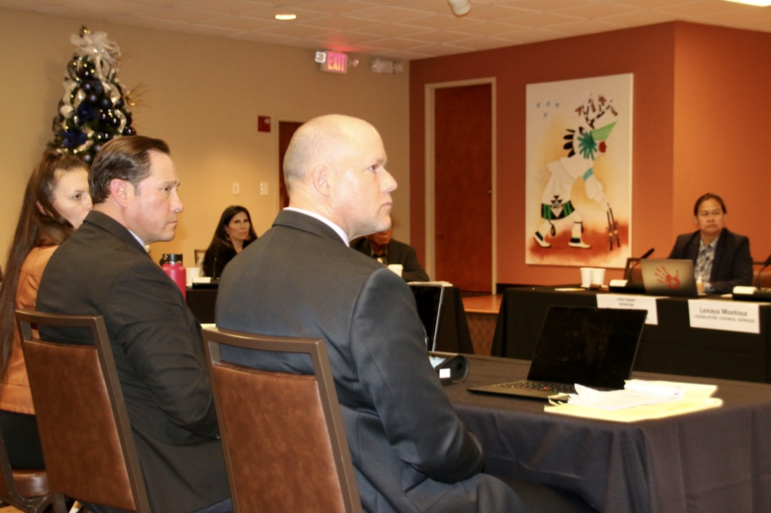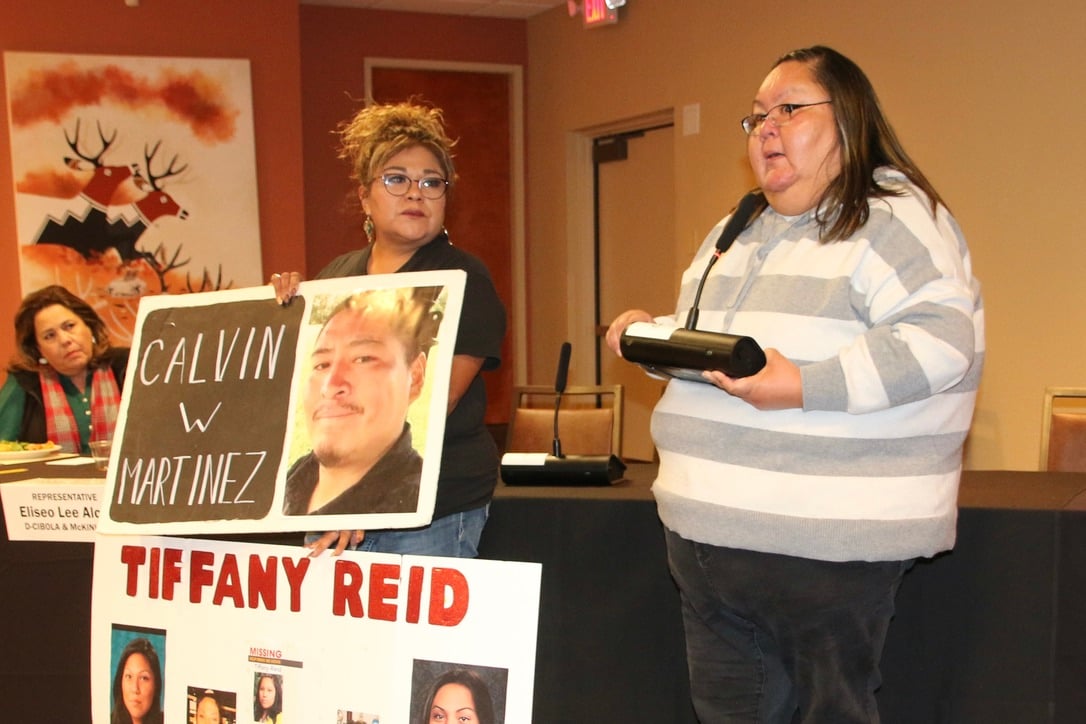Lawmakers and advocates this week said an advisory council on missing and murdered Indigenous people Gov. Michelle Lujan Grisham’s administration announced Tuesday isn’t a good replacement for a task force disbanded earlier this year, and questioned why state officials aren’t asking for more money to confront the crisis.
Asked by lawmakers Tuesday about what the state is doing, Indian Affairs Secretary-designate James Mountain pointed in part to the advisory council, which he said will hold state agencies accountable as they carry out recommendations made last year by the defunct task force.
But Mountain’s update didn’t satisfy lawmakers or Indigenous families who have lost loved ones.
“We’re fighting for our families,” Vangie Randall-Shorty told Mountain and other officials during public comment of the Legislature’s Indian Affairs Committee in Albuquerque. Her son, Zachariah Juwaun Shorty, was found dead from gunshot wounds on the Navajo Nation in July 2020. “These are human beings and you don’t take this serious. Come on, get it together for us. We’re tired of having to relive our trauma every single time we come up here and we tell our stories.”
The administration quietly ended the task force about six months ago, a decision advocates and affected families have urged Lujan Grisham to reverse, saying their work was just beginning. The Indian Affairs Department convened the group for the last time in May, just a few months after some of its members spoke out against the governor’s appointment of Mountain to lead the department.
Advisory councils “get buried in state government,” Sen. Linda Lopez, D-Albuquerque, said, and can’t do what the task force did.
“The task force was able to bring many entities together. It was a focal point of engagement, communication,” Lopez said. “I still believe that there is a role also for a task force. … It gives a voice to our communities.”
To Rep. Patricia Roybal Caballero, D-Albuquerque, the creation of a new advisory council sounded like the state is “starting from scratch,” adding it appears the council won’t have any authority.
A key difference between the two groups is size. While the task force had dozens of members, the council — led by Pojoaque Pueblo Gov. Jenelle Roybal and Picuris Gov. Craig Quanchello — will have nine to 11, according to Mountain.
“I understand the value of the task force,” said Mountain, a former governor of San Ildefonso Pueblo. “I understand the work they’ve done. And I hear you loud and clear on what your expectations are and I’ll be sure to take that message back to the administration.”

The department aims to have quarterly public meetings, tentatively set to start in January, so staff can give updates and community members can keep in touch with each other, said Indian Affairs Deputy Secretary Josett Monette.
The council’s mission, meanwhile, will be to guide the Indian Affairs Department as it works to enact a state response plan the task force delivered in 2022. That plan calls for mandatory law enforcement training on trauma-informed care and cultural sensitivity, financial support for families, improved data collection and expanded access to housing and other necessities, among many other proposals.
Rep. Patricia Lundstrom, D-Gallup, the former chairwoman of the House of Representatives’ powerful budget committee, asked how much money the department and the state attorney general’s office will request in next year’s state budget to carry out the plan.
The department is asking the Legislature to fund four new full-time employees, Monette told lawmakers. Their duties would include “responding to families, working in the community, giving education, doing all that work” outlined by the task force, department coordinator Melody Delmar said in an interview with New Mexico In Depth on Nov. 17.
A missing Indigenous persons specialist in the attorney general’s office is working closely with the FBI and other law enforcement agencies, Chief Deputy Attorney General James Grayson said, but the items in the state response plan “are not part of the plan for the attorney general’s office.”
The state’s response “needs to have a real budget request to it,” Lundstrom said. “It needs to be taken seriously, and it needs to have major coordination. It doesn’t matter how great a plan is if it’s not paid for and if those services don’t exist on the ground. … I’m very disappointed.”
Mountain replied he and the department have over the last few months examined what the task force was calling for, but have yet to put together a “comprehensive plan” and a “measurable timeline of actions.”
“When some constituent of mine calls me and tells me that they’ve got an incident like this, I’m not going to say, ‘did you look at the plan on the website?’” Lundstrom said. “I want to know, what are we doing today?”
Mountain responded “education and outreach.”
“Is it enough? No. There’s not a doubt in my mind,” Mountain said.
Department staff have also met with various law enforcement agencies, participated in a federal commission hearing in June and partnered with a handful of other states and the University of Nebraska, he said. Staff also met once with the attorney general’s office, which Mountain said is also “not enough.”
“That’s on me,” he said. “Bringing those partnerships, communicating with the task force previously has not been good enough.”
